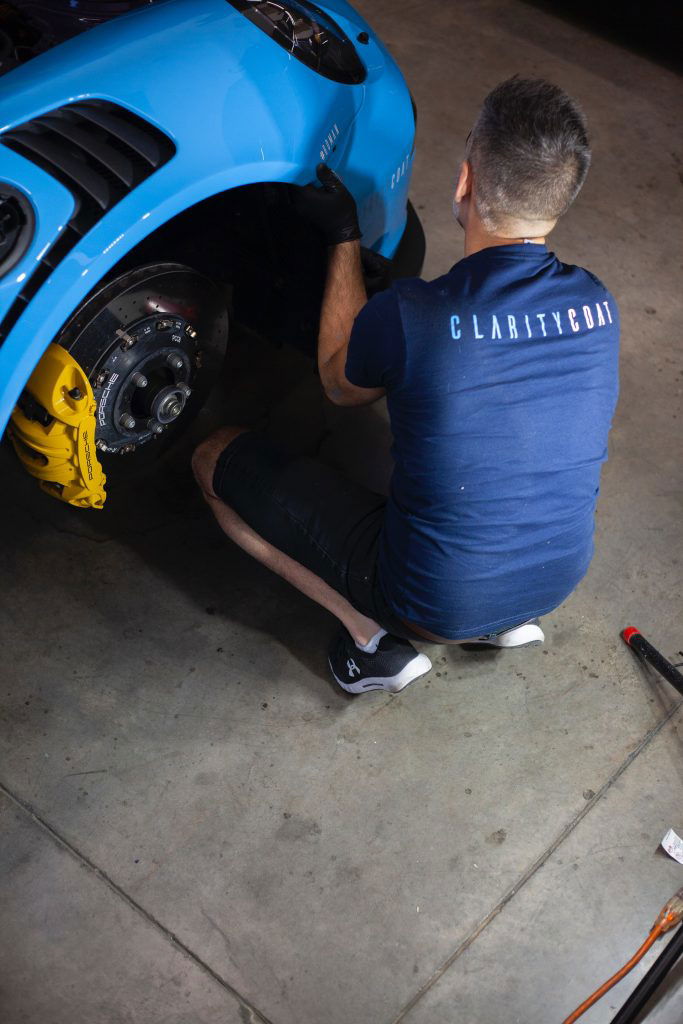As a responsible car owner, you know that regular maintenance is crucial to keep your car running safely and smoothly. One of the most important safety features of your car is its braking system, which is responsible for stopping or slowing down your car and preventing accidents on the road. Proper maintenance of your car’s braking system is essential to keep you and your passengers safe.
At Treasure Valley Auto Care, we’ll discuss some valuable car brake maintenance tips to help you keep your car’s brakes in good condition. Whether you need help with your car’s braking system, brake repair, or general maintenance, these tips will be useful. Keep scrolling below to learn more.
How Do Car Brakes Work?

Car braking systems may appear simple, but they are actually quite complex. When a car is moving, it possesses a significant amount of kinetic energy that requires substantial force to stop. To bring a car to a halt, its braking system converts this kinetic energy to heat through friction. The brake pads press against the wheels, generating enough friction to prevent the wheels from spinning and stopping the car.
When you press the brake pedal, it activates a lever that pushes the piston inside the master brake cylinder, which is filled with brake fluid. The brake fluid is then forced through brake lines that connect to the cylinders on the four wheels of the car. The pistons inside the cylinders interact with the car’s brake pads, engaging them with the rotors to generate the friction necessary to bring the car to a stop.
To stop a 5000+ pound vehicle, the force applied to the brake pedal must be multiplied by the hydraulic system. The car’s braking system creates a considerable amount of heat, reaching temperatures of around 500 degrees Celsius, due to the friction generated by the brake pads on the rotors. Therefore, the brake pads must be made from heat-resistant materials, as they are prone to wear and tear over time. Cars commonly use disc or drum brakes.
Brake Pad Replacement
Brake pad replacement is the most common type of brake maintenance for cars. Brake pads receive friction and heat when you apply the brakes on your vehicle, causing them to wear down over time. Signs of worn brake pads can include a loud screeching or grinding noise when you apply the brakes, or the need to apply more force to bring your vehicle to a stop.
Brake pads typically need to be replaced every 15,000 to 30,000 km. Like tire treads, it’s recommended to replace them when they reach a specific wear level. In the case of brake pads, they should be replaced when they reach approximately 8-12mm thickness. The lifespan of brake pads depends on various factors, including the climate, driving style, manufacturer, and type of vehicle.
Rotor Maintenance
The rotors are a crucial component of a car’s braking system. They are metal discs that resemble flying saucers and are located behind the hub cap on the wheel hubs. When the brake pads press against the rotor, it generates a significant amount of heat and gas.
Over time, rotors can become damaged or worn, preventing the brake pads from making optimal contact to slow down or stop the car. While brake rotors may last longer than brake pads, they are still prone to damage. If the brake pads become worn and loose, they can cause metal-to-metal contact that damages the rotors.
Regularly check the brake rotors for any signs of damage, such as cracks, large scratches, or irregular shapes. If any issues are detected early on, the rotors can be machined or resurfaced to fix them instead of replacing them altogether.
Brake Fluid and Lines

The brake fluid is crucial in the braking system as it converts the downward pressure of the pedal into the brake piston, bringing your vehicle to a stop. Brake fluid is stored in a sealed system and can last a long time, but moisture and air can enter the brake lines, making them vulnerable to damage and potential brake fluid leaks. Both major leaks and small pin-sized leaks can occur, making it essential to inspect the brake lines and brake fluid regularly. During the car’s oil change, a mechanic can check them.
The brake fluid can be flushed when necessary by a mechanic, who will remove all the brake fluid from the braking system and replace it with fresh brake fluid. The recommended intervals for changing brake fluid can range from every 2 years or every 40,000 km, or as needed. You can ask your mechanic, check the car manufacturer’s recommendations, or follow the car’s warranty requirements.
Bleeding the brake lines is necessary when brake fluid decreases, and air enters to fill the lines, causing reduced effectiveness of the braking system. Bleeding can be done by removing air from the brake line while stepping on the brake pedal and simultaneously adjusting the bleeder valve. It’s crucial to have this done by a reliable mechanic from an auto repair shop, such as Treasure Valley Auto Care.
Maintaining and repairing cars is crucial to ensure safe driving, and brakes are one of the most critical safety aspects of a car. If there are any issues, it’s crucial to have your car checked by a professional car shop, as brake failure can result in accidents and injuries to you and your passengers.
What are the signs to watch out for when car brakes are having problems or issues?
- Noises like squeaking, squealing, screeching, or grinding when stepping on the brakes
- Shaking sensation in the car while stepping on the brake pedal
- More force is needed when stepping on the brakes to make the vehicle slow down or stop
If your car needs brake repair or maintenance, in Garden City, Idaho, you can contact Treasure Valley Auto Care to ask for our assistance.
If you’re in Garden City, Idaho, you should definitely check out Treasure Valley Auto Care for your car maintenance and auto repair needs. Our reliable services are designed to keep your vehicle running smoothly. If you’re interested in scheduling an appointment or learning more about our services, please contact us as soon as possible.
You can reach us at 208-385-0339 or by sending an email to quality@treasurevalleyautocare.com. Trust us to take care of your car’s maintenance needs. Contact Treasure Valley Auto Care today!
